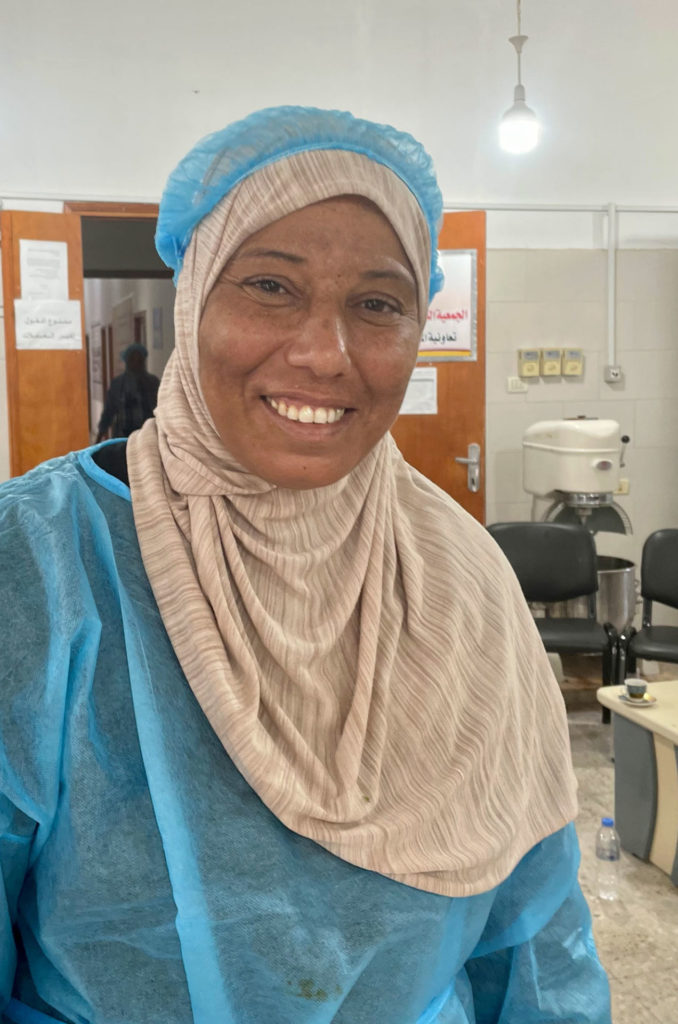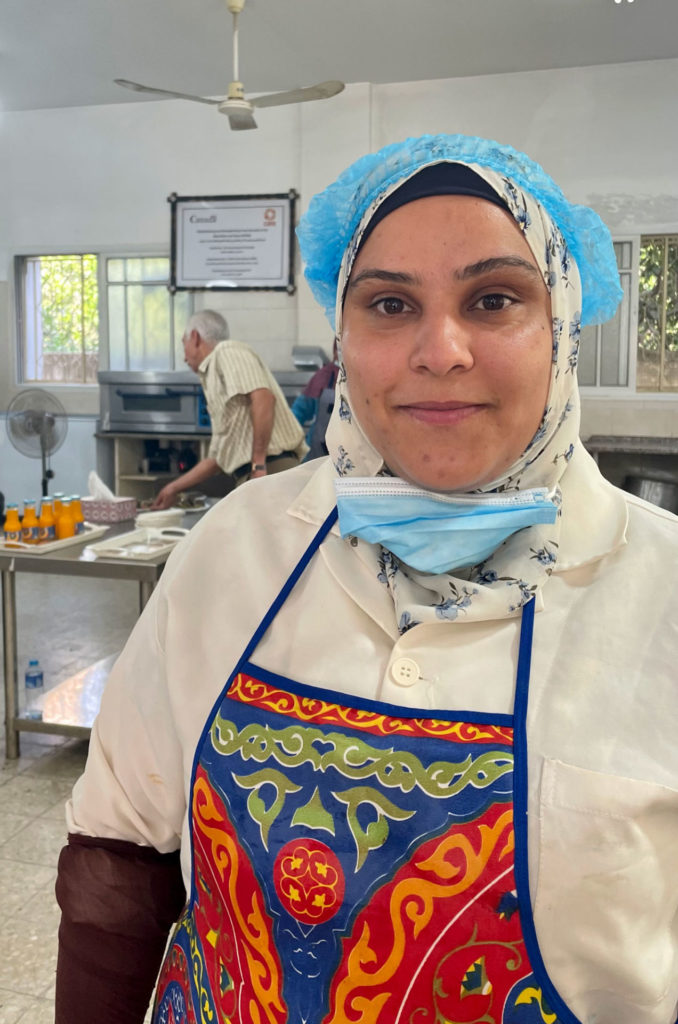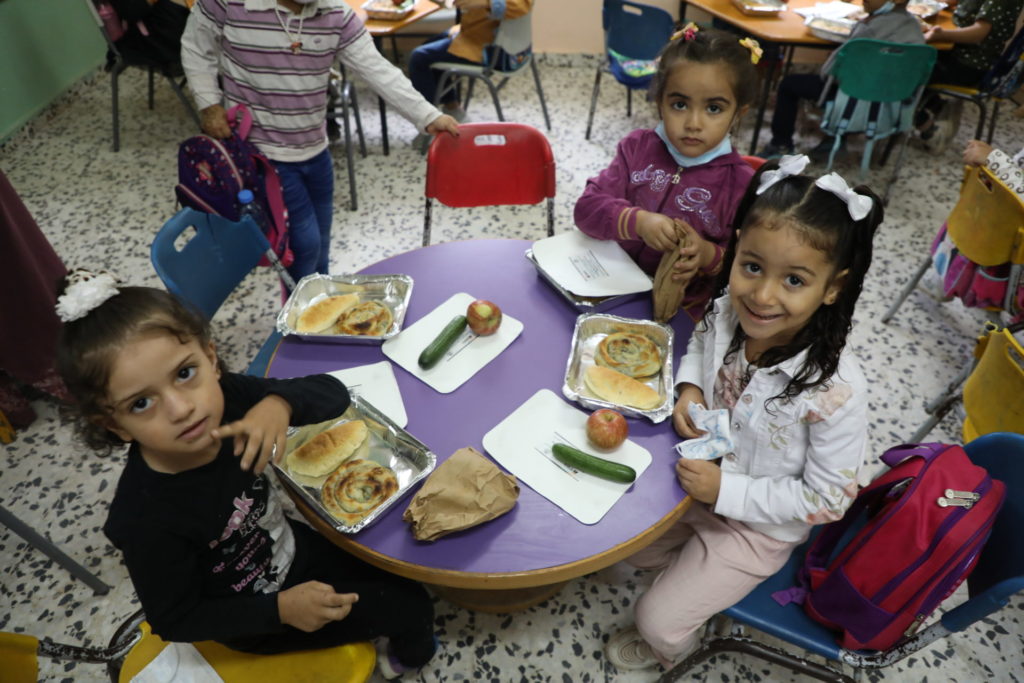Fighting Food Insecurity and Unemployment with Farms to Fosool
Posted in: Programs
Empowering and supplying farmers to bring fresh and nutritional meals to children in Gaza
Across Gaza, families are struggling with food insecurity and unemployment, making it difficult to provide adequate meals for their children each day. Without a properly nutritious diet, children often have poor concentration in school, and suffer from eating and sleeping disorders.
Anera’s Farms to Fosool (F2F) project — fosool, or فـُصول, means classrooms — brings together the educational, agricultural, and health sectors of Gazan society. The project is a sustainable, long-term community partnership between family farmers, working women and schools. F2F is funded by the generosity of Alumbra Innovations Foundation, World Central Kitchen, and a private family foundation.




How it works
First, F2F hires 20 local farmers to provide fresh produce, ensuring them an income and outlet for their products. The project then employs 40 local women to prepare and package fresh breakfast meals every day. In a territory with one of the highest unemployment rates in the world, and where women face even more challenges to finding work, these jobs offer vital employment opportunities. And finally, F2F delivers the freshly prepared and nutritional meals to 12 preschools across Gaza, reaching 1,428 children every morning. The food helps improve their mental and physical health and development.
F2F is dedicated to leaving a lasting impact on the health and nutrition of children in these areas. Along with daily breakfast meals, Anera monitors the children’s growth and development by arranging growth measurements, blood testing, performance tests within the classroom, as well as viability, social, cognitive, and motor development tests.
In some cases, the food from the F2F project is more nutritious than the food available at home. A father of a participating child reflected on the program: “I had an appointment with my doctor and took my son with me. He advised me to eat nutritious food that is rich in calcium, so my son said: ‘Dad, I’ll bring you part of the meal I get at preschool, especially the one including white cheese, so you will get better.’“
Parents, teachers, and students in Gaza alike must be in tune with healthy nutritional practices. F2F delivers feedback on the project’s progress to some 1,400 mothers of affected preschoolers, more than 60 teachers, and for the women of the cooperatives. Feedback sessions also include training on good nutritional practices for children, identifying child illnesses from malnutrition, and healthy hygiene practices.
Ensuring good hygiene requires special precautions and diligence in Gaza, where the water that comes out of the taps is often polluted. Even the water purchased for drinking is sometimes contaminated with bacterial blooms. Water-borne infections are common, especially in children, and can cause stunting and worse. Anera’s F2F sessions raise awareness and prepare those involved to effectively combat malnutrition among students whose families are in need.
With the skills and knowledge to guide children into healthy food and hygiene practices, families and teachers are learning how to effectively support their students and children and inspiring these practices to continue in the future.


Behind the scenes
F2F’s multifaceted approach represents a virtuous circle of effective action to combat hardship in the region. Not only is it essential to provide healthier meals to students, it is just as important to empower the different sectors of Gazan society – farmers and unemployed women in this case – providing them with the knowledge and understanding to continue healthy and sustainable practices. Each prong of the program supports and helps sustain the other components.
The fresh produce used to make the meals for preschoolers is grown and supplied directly by male and female family farmers in the region. These individuals own greenhouses and take advantage of the opportunity to help while also benefiting from their community. F2F recruited three Women CSSL (Cooperative Society for Saving and Lending) partners in north, middle, and south Gaza who work in shifts day and night to prepare healthy meals for preschoolers.
A teacher working in one of Anera’s 12 partnered preschools sees the impact of Farms to Fosool every day. “We offer this healthy breakfast for the children every morning. It contains fruits, vegetables, milk, and cheese. Breakfast is mostly unaffordable for Gaza children because of the bad economy [and] many children come to school without food. This program ensures every child now has a meal.”
As households face dire shortages of food, one parent notes, “It was difficult for me to wake my daughter up in the morning to go to preschool. But after the meal distribution [program] began, every evening before she goes to sleep, my daughter asks me to wake her early to have her meal early in the morning.”
Implementing long-lasting sustainable practices
Sustainability is the most effective method to keep healthy practices ongoing. Incorporating lessons learned from similar projects like Anera’s Milk for Preschoolers program, F2F is ensuring that sustainability is considered every step of the way.
Anera creates a value chain that can support itself. F2F promotes the use of greenhouses among partnered farmers, thereby supporting a market for their crops and for local agriculture.
F2F integrates top-quality water filtration systems and solar power capability into the schools, lowering the cost of upkeep.
And, despite the difficulties in importing many basic materials in Gaza, we have worked hard to source food containers that can be recycled or upcycled. As Suad Lubbad, our F2F program officer, observes, “the metal containers can also be turned into learning materials themselves – to write or draw on, from learning the alphabet to making fun designs. The preschoolers use cleaned-out containers to plant seeds and learn about healthy vegetables their families can grow at home. They get so excited watching the seeds sprout and grow.”
Students can repurpose their used food containers for classroom activities.
Lessons Learned
The detrimental impacts of food insecurity often slip under the radar. Addressing hunger and malnutrition must begin early. Children need consistent access to nutritious food in order to thrive.
Children who learn healthy food habits early on and have the means to obtain that food will keep those habits forever. And unhealthy diets driven by economic hardship and bad eating habits lead to chronic conditions and expensive medical bills that few in Gaza can afford. Another affected parent expressed their gratitude, “Thank you to all the people who contributed to this project. It was hard to think about what breakfast I could send with my son and where to get money for him to buy food at preschool.”
Beyond the preschools, Farms to Fosool is establishing a sustainable model of program intervention that engages different sectors of society to strengthen each other. Supporting small farmers and employment for women are key elements to making the program as impactful as it is. Farmers, teachers, and dedicated cooperative workers alike have the power to transform their communities for the better, and with the support of Anera’s community, they can continue to do so for generations to come.
OUR BLOG
Related
In this log, Anera provides updates on unfolding war in Palestine and our response. Please stay tuned here for the latest information. To subscribe for weekly updates via SMS on our response in Gaza, text GAZA to 1-866-549-0055. Questions? See…
I’m from Bethlehem, Palestine. This is my home. My family has been rooted here for generations. I have spent my entire life in this city—47 years born and raised. I’ve been with Anera since 1999, marking 25 years as of…
Standing in the heart of Tyre, a city once full of life and history, I felt the weight of the devastation here, pressing down like the rubble that now defines its streets. As my team and I walked through the…

